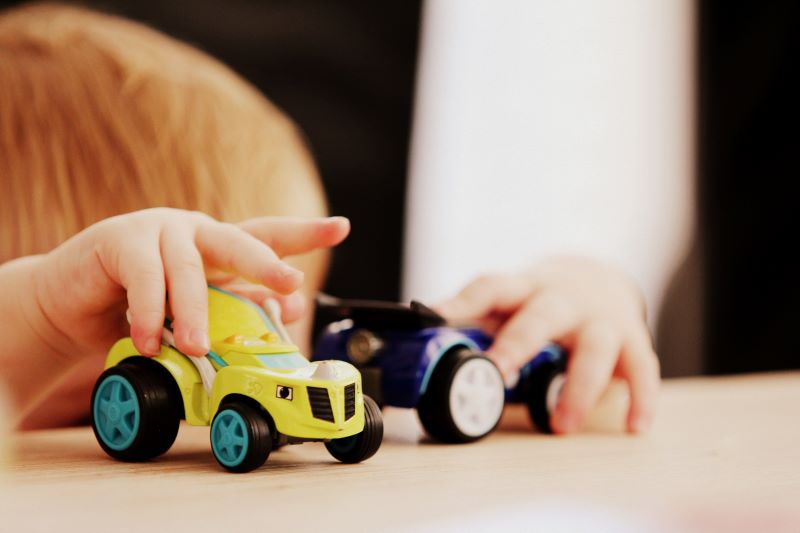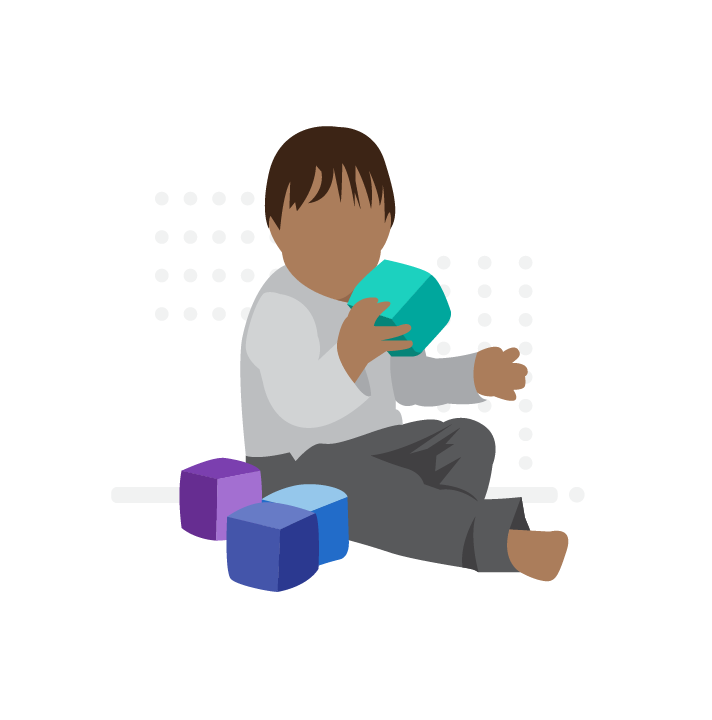Growing Minds With Cognitive Development Activities for Toddlers
Cognitive development in toddlers is very important; during this time, children learn to better process and organize information, and to form a baseline of understanding about the world around them. However, between two and three years, language acquisition and logical thought often lag behind a child’s curiosity and drive for self-expression. This can lead to a lot of frustration for the parent and youngster alike — that’s why tantrums at this age are so common as they develop cognitive skills.
The best cognitive development activities for toddlers integrate learning with play. This way, you can encourage your child for better engagement and better results. You’re monitoring progress while your child is partaking in fun activities, making these mental exercises productive and enjoyable for both parties.
Child cognitive development activities for memory
Hide and Seek
Hide an object under a towel or blanket and ask the toddler to point it out, or shuffle an object between your hands. This helps develop short-term and visual memory, the ability to form mental images when an object can’t be seen directly.
Nursery rhymes, reading books, and sing-alongs
Repetition encourages the formation of long-term memories, as the patterns and sequences found in simple rhyme and song are easier for your young minds to follow. As the child grows more familiar with the nursery rhyme, story, or song, pause before the next section or cover up the next word and ask them to fill in the blanks. Songs with associated actions or choreography can help toddlers learn to react to cues.
Letter and number games
Letters and numbers are the foundation for language and mathematical reasoning, so it’s a good idea to acquaint your toddler with the alphabet and counting before preschool and kindergarten. Learn the alphabet song, play with alphabet blocks or magnets, or tape letter cutouts to objects whose names start with that letter. As far as numbers go, look for opportunities to count whenever you can!
Cognitive development activities for toddlers’ logic
Simple routines and choices
Between the ages of 2 and 3, a toddler should develop the ability to respond to simple instructions and start forming routines. When it’s time to get dressed, offer a choice of two outfits. When it’s time to eat, offer a choice between two different snacks. This way you’re feeding the toddler’s desire for independence while remaining in control.
Sorting and classifying
Toddlers should be able to organize and classify objects — and shape and color are two of the easiest ways to categorize. Have them sort colored toy blocks, shapes, or pegs from large to small, or have them pick out toys of only a specific shape or color. Outside of dedicated play sessions, ask them to pick out or describe objects to you in these terms while going about your daily routines.
Matching games and puzzles
You can base many preschool cognitive development activities around relationships between sights and sounds (e.g., animals and the sounds they make) or how objects fit together spatially (e.g., a 2D or 3D puzzle with large pieces). Trial-and-error problem solving skills are often cited as a key developmental milestone.

Cognitive development activities for toddlers’ imagination and creativity
Arts and crafts
Toddlers watch and observe the world around them with rapt fascination. They are especially interested in emulating or mirroring the activities of their parents or caretakers. Draw, paint, or mold something together or supervise an independent art project from a safe distance. A box of child-safe art supplies such as fingerpaints, crayons, chalk, scrap paper, and/or PlayDough in your household is a must.
Outdoor play and exploration
It’s important to allow some unstructured (but still closely monitored) playtime to foster independent creativity and improvisation — playing out in the yard or at the park without the distractions or technologies of the indoors helps increase attention span and familiarize the child with the world around them. Go places and do things together and ask them about their experiences — their replies might be funny or even enlightening!
Variety and improvisation
Over time, you’ll find toddlers staging more elaborate scenarios and scenes as new toys and objects are introduced. Outer space obstacle course, anyone?
Without a toy or game in front of them, sometimes young children have to create their own entertainment. Common household items like pots and pans, backyard items, and even a cardboard box can be the basis of any of the games mentioned above.
Different faces, different paces
Preschool cognitive development activities do not follow a set schedule — each child’s mental connections form at their own pace. Interaction and play can accelerate this process but do not guarantee it. If you are concerned or have reason to believe that your toddler has fallen behind, ECCM’s early intervention services can help get him or her up to speed. Do not hesitate to contact us!

